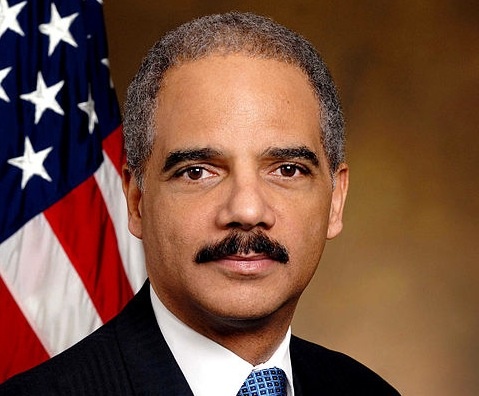DOJ reportedly will sue NC over voter ID law

It sounds like U.S. Attorney General Eric Holder will answer Sen. Kay Hagan's call to protect voting rights in North Carolina.
Late last night word leaked to the Associated Press, The New York Times, and The Charlotte Observer that the U.S. Department of Justice plans to sue the state over its recently passed Voter Identification Verification Act (VIVA), which among other things imposes a strict mandate on voters to have certain photo voter identification in their possession to access their ballots.
Holder is expected to make a full announcement about this today during a press conference in the state. According to the media outlets that broke the news last night, the Justice Department will aim specifically at VIVA sections that mandate photo ID, strip the first seven days and final weekend from early voting, ban same-day registration, and limit out-of-precinct voting. Civil rights advocates have criticized those provisions as unduly burdensome for people of color, college students, women, and elderly voters -- all voting populations that tend to favor the Democratic Party.
It is not yet clear what form or fashion Holder's legal challenge will come in, but he's expected to declare the voter ID law a violation of the Voting Rights Act. A few lawsuits have already been filed against it, including one co-signed by the American Civil Liberties Union and Southern Coalition for Southern Justice, another filed unilaterally by SCSJ, and one co-signed by the Advancement Project and the North Carolina NAACP state conference. The lawsuit filed by SCSJ alone argues that the law violates voting rights protections in the state's constitution, while the other two make claims under the federal Voting Rights Act and the U.S. Constitution. All of them take aim at the same VIVA provisions that Holder's legal challenge reportedly will target.
Holder has already intervened to enforce Voting Rights Act protections in a voter ID law case out of Texas. He’s also challenged that state’s redistricting law under the VRA. In both of those cases, federal courts had already struck the laws after finding both inadvertent and intentional racial discrimination in how they would be applied.
Courts reviewed and ruled against these laws when Texas was subject to VRA Section Five "preclearance," which required the state to prove that its new election laws would not result in racially discriminatory disenfranchisement before implementing them. The U.S. Supreme Court's Shelby v. Holder ruling in June invalidated Section Five's coverage formula that captured all of Texas. In the new lawsuits, Holder is seeking for Texas to be re-entered into preclearance oversight under VRA's Section Three.
In North Carolina, 40 of the state's 100 counties were subject to the same Section Five preclearance auditing as Texas. Holder reportedly will request a Section Three preclearance bail in, but it's not yet clear if will seek that for the entire state or for the 40 counties recently covered under Section Five.
Holder has announced on a number of occasions since the Shelby ruling that he would vigorously enforce the remaining tools of the Voting Rights Act to protect voters of color. Sen. Hagan, a Democrat, has not been alone in asking Holder to use those tools in North Carolina: State Attorney General Roy Cooper, also a Democrat, has expressed objections to VIVA and started a petition asking Gov. Pat McCrory (R) to veto the bill before he ultimately signed it into law.
But even some Republicans national and local -- from former Secretary of State Colin Powell to congressional hopeful Jason Thigpen -- have criticized their own party members in the state for supporting the law.
Meanwhile, NAACP state conference leader Rev. William J. Barber has led thousands to the state capitol to protest against the voter ID law and other regressive policies passed this year by the Republican-dominated General Assembly, with hundreds arrested for civil disobedience.
However, election law expert Rick Hasen has warned that it will not be easy to make legal challenges to VIVA under the Voting Rights Act.
"The chances are slim that the Department of Justice can prove enough intentional discrimination by North Carolina to get it 'bailed in' to preclearance under another provision of the Voting Rights Act," Hasen wrote in Slate.
But many in North Carolina are cheering Holder's expected intervention.
In a message sent out last night over Twitter, Democratic state Sen. Josh Stein said DOJ's action "is a big deal." The elections watchdog group Democracy North Carolina released a statement today saying it "applauds the decision" and will "welcome a vigorous challenge to a law designed to push away certain voters and rig the election system to benefit incumbent politicians."
“We need every resource, including the federal Department of Justice, to stand against the fundamental attack on democracy,” Rev. Barber told The Charlotte Observer. “This law went beyond the pale and all North Carolinians should be repulsed by this effort to turn the clock back on voting rights in this state.”
